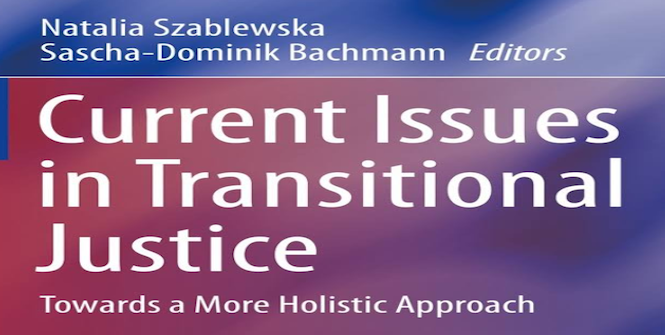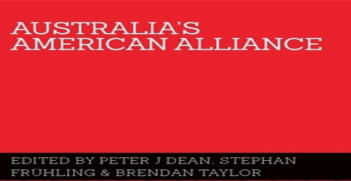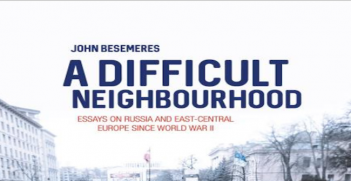Reading Room: Current Issues in Transitional Justice

Judging by the plethora of recent books and academic articles, the field of transitional justice scholarship is booming. A gradual broadening of the field also seems to be underway with scholars identifying an ever-widening range of processes and mechanisms used by states and societies to address legacies of mass violence.
In addition to criminal trials and truth commissions, other processes such as reparations programs, apologies, amnesties, institutional reform, memorialisation, local or customary justice mechanisms and community arts initiatives have all come under the transitional justice microscope. Scholarship also increasingly recognises the blind spots of transitional justice—for instance, its state-focused lens, its occlusion of issues of structural violence, its capacity to reify gender binaries and its narrow understandings of both ‘justice’ and ‘transition’. An increasing transdisciplinarity is also evident, as scholars from a range of disciplinary backgrounds seek to, in the words of Christine Bell, “decolonise law’s hold on the discourse”.
Current issues in Transitional Justice: Towards a More Holistic Approach, edited by Natalia Szablewska and Sascha-Dominik Bachmann is part of this new wave of transitional justice scholarship. Chapters are authored by scholars and practitioners from a wide range of disciplinary backgrounds and cover an eclectic range of topics. These include ‘smart amnesties’ in South Africa, Aboriginal land rights litigation in Australia and South Africa, forced displacement, children in armed conflict, human trafficking, sex work and the role of ecological jurisprudence in addressing the consequences of environmental change. The editors’ stated aim is to “draw attention to matters often not covered with sufficient magnitude or comprehension” in transitional justice scholarship.
While the chapters are of uneven quality, several provide strong and refreshingly new explorations of questions of transitional justice. For instance, I found the fifth chapter fascinating for its discussion of recent community-led arts and music initiatives to address the legacy of blackbirding. Blackbirding—the recruitment of men and women from Vanuatu and the Solomon Islands to work on cane fields and cotton plantations in Australia—continued until the early 20th century. Yet, as chapter author Thomas Dick notes, there is limited acknowledgement of its legacies by the Australian government. The sixth chapter, which uses a gender lens to unpack the implications of the Australian-led Regional Assistance Mission to Solomon Islands, is similarly strong. It makes a convincing case that the top-down, state-centric focus of RAMSI’s policing and institution-building initiatives has entrenched patriarchal relations, and it argues for more attention to customary sources of authority. Both chapters highlight the need to look beyond state-focused approaches to transitional justice and examine a much wider range of actors and practices involved in addressing legacies of human rights abuse.
The broad and eclectic approach of this collection is both a strength and weakness. On the one hand, it is difficult to find a common thread linking the diverse topics covered across the chapters, making the collection disjointed. The editors’ attempt to divide the chapters into four sections and summarise key themes in a concluding chapter seems a little forced and artificial. On the other hand, that the collection attempts to broaden ways of thinking about questions of ‘transition’ and ‘justice’ is thought-provoking. Such reflections are arguably also necessary given the ever-evolving nature of contemporary conflicts and the emergence of new global environmental challenges.
Natalia Szablewska and Bachmann Sascha-Dominik (eds), Current Issues in Transitional Justice: Towards a More Holistic Approach, Springer, 2015
Dr Lia Kent is a fellow at the Australian National University’s School of Regulation and Global Governance (RegNet).





